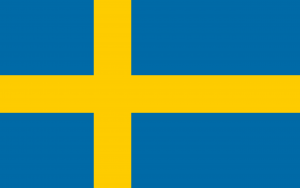Language/Swedish/Culture/Swedish-politics-and-society
 Հայերէն
Հայերէն Български език
Български език 官话
官话 官話
官話 Hrvatski jezik
Hrvatski jezik Český jazyk
Český jazyk Nederlands
Nederlands English
English Suomen kieli
Suomen kieli Français
Français Deutsch
Deutsch עברית
עברית हिन्दी
हिन्दी Magyar
Magyar Bahasa Indonesia
Bahasa Indonesia فارسی
فارسی Italiano
Italiano 日本語
日本語 Қазақ тілі
Қазақ тілі 한국어
한국어 Lietuvių kalba
Lietuvių kalba Νέα Ελληνικά
Νέα Ελληνικά Şimali Azərbaycanlılar
Şimali Azərbaycanlılar Język polski
Język polski Português
Português Limba Română
Limba Română Русский язык
Русский язык Српски
Српски Español
Español العربية القياسية
العربية القياسية Wikang Tagalog
Wikang Tagalog தமிழ்
தமிழ் ภาษาไทย
ภาษาไทย Türkçe
Türkçe Українська мова
Українська мова Urdu
Urdu Tiếng Việt
Tiếng ViệtSweden's political system and social issues are interesting subjects of study. Understanding these components is crucial to getting to know more about the country and the Swedish way of life. In this lesson, we will discuss Swedish politics, its history, and some of the most pressing challenges facing the society today.
Swedish Politics
Sweden is a constitutional monarchy with a parliamentary democracy. The head of state is King Carl XVI Gustaf, but he holds a largely ceremonial role with no political power. The actual head of the government is the Prime Minister. The Swedish Parliament, or Riksdag, is unicameral and composed of 349 Members of Parliament (MPs). The MPs are directly elected every four years.
Since 1917, Sweden has had a social democratic approach to governance. This means that the Swedish welfare state aims to provide universal access to public services and support for all citizens. Though there have been changes in government over the years, the social democratic welfare state model has remained intact.
Swedish Society
Swedish society typically scores highly on quality of life and equality indices. Swedish people place a high value on individuality, self-sufficiency, and democracy. Generally speaking, Swedes are respectful of each other's privacy and personal space. They have a strong commitment to gender equality and environmentally sustainable living.
However, the country is not immune to social problems. For instance, the Swedish model of integration is facing a crisis. The country has struggled to accommodate the large influx of immigrants and asylum seekers from the Middle East and Africa over the past decade. The integration process has been challenging, with high unemployment rates and social alienation among some immigrant populations.
Environmental issues also pose a significant threat to Swedish society. Despite being regarded as one of the most eco-friendly countries worldwide, Sweden struggles to achieve its ambitious environmental goals. One of the significant issues is the declining population of pollinating insects. This topic has gained increasing attention from politicians and the general public, and the government has taken steps to address it.
Swedish Political Parties
Sweden has several political parties. The largest parties currently represented in the Riksdag are the Social Democrats, the Moderates, the Sweden Democrats, the Centre Party, the Left Party, the Christian Democrats, and the Liberals. However, it is worth noting that Sweden also has a long history of coalition governments. As such, it is not uncommon for several parties to work together to form a government.
To conclude this section, let's take a look at the summary table below:
| Party | Ideology | Seats in Riksdag |
|---|---|---|
| Social Democrats | Social democracy | 100 |
| Moderates | Conservatism | 70 |
| Sweden Democrats | Populism and euroscepticism | 62 |
| Centre Party | Agrarianism | 31 |
| Left Party | Democratic socialism | 28 |
| Christian Democrats | Christian democracy | 22 |
| Liberals | Liberalism | 20 |
Sources

